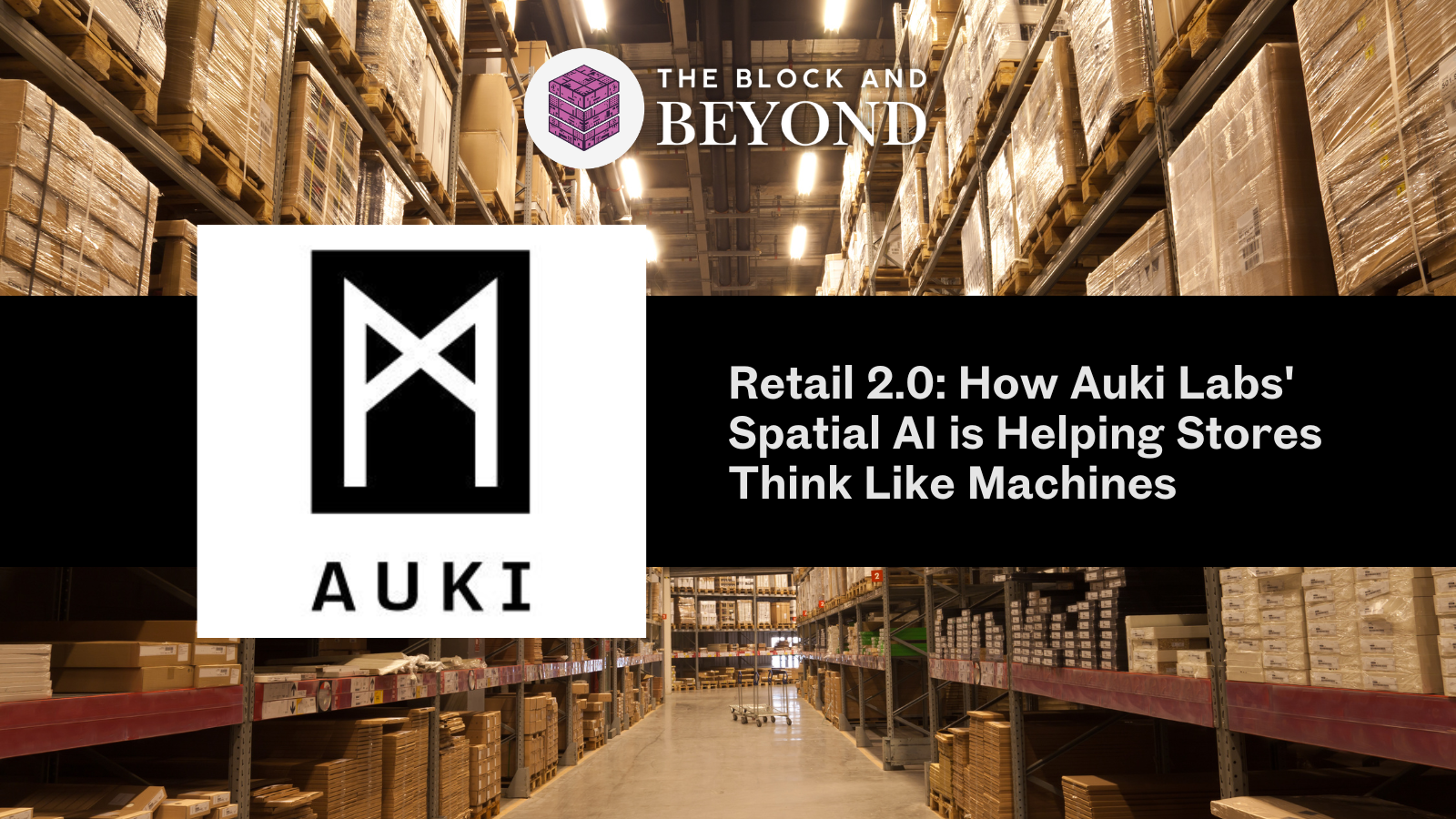Inventory confusion. Misplaced products. Disorganized shelves. These problems might disappear soon thanks to Spatial AI and a robot named Athena, bringing machine logic to the retail world through real-time mapping and decentralized data.
Imagine walking into a supermarket that knows exactly where every product is, when a shelf layout has changed, and how to guide robots to the right aisle without human input. This isn’t a futuristic dream—it’s already happening, thanks to Auki Labs.
In an exclusive interview with The Block and Beyond, Santeri Aramo, founder of Auki Labs, explained how they are at the forefront of decentralized Spatial AI, and their innovations are transforming how retail stores operate.
With its Posemesh protocol and purpose-built tools like Cactus and Athena, Auki Labs is giving businesses the power to build and maintain real-time, machine-readable digital twins of their physical environments.
Turning Retail Spaces into Digital Twins
The heart of this transformation is Cactus, Auki Labs’ Spatial AI platform designed for the retail sector. With Cactus, stores can create precise digital representations of their physical layouts, including product placements, shelving, and navigation paths.
This isn’t just about creating a visual map. These digital twins are fully interactive and designed to work with machines. The Posemesh protocol allows devices in the store, like smartphones, AR glasses, and robots, to access location data, orientation, and updates in real time.
"We can place every single product in that space precisely," said Santeri. "And once a staff member changes a shelf layout, it no longer matches the digital twin. That’s where Athena comes in."
Meet Athena: The Robot that Keeps Stores Synchronized
Athena is Auki Labs’ purpose-built robot designed to roam retail environments autonomously. It’s equipped with cameras and sensors and connects directly to the Posemesh network. Its job? To scan the store overnight and update the digital twin before customers and staff return the next morning.
This creates an environment where machines can collaborate. Robots and staff can rely on the same shared map of the store, which stays accurate without manual input. Athena solves one of the biggest challenges in spatial computing: keeping digital representations in sync with ever-changing real-world layouts.
"It fixes just that section of it... We use QR codes to seamlessly stitch the digital twin back together."
Inventory Logic Without the Guesswork
By using Posemesh with Cactus and Athena, retailers gain unprecedented insight into how products are organized and accessed. The system understands space the way a machine does through pose data (X, Y, Z coordinates plus rotation), obstacle mapping, and real-time orientation syncing.
This allows stores to optimize layout, guide new staff efficiently, and even automate inventory checks. Since the data is stored locally via storage nodes, businesses don’t have to worry about customer privacy or sharing sensitive operational data with centralized cloud providers.
"Real-time pose data gives retailers a new level of spatial awareness without sacrificing privacy or relying on the cloud."
Auki Labs’ decentralized approach ensures that stores maintain control over their data while benefiting from the same spatial computing capabilities used in cutting-edge robotics.
The Future of Retail Is Spatial
Businesses running Posemesh infrastructure can also earn rewards by contributing compute or storage capacity.
From persistent AR layers for staff training to collaborative robotics that respond to real-time changes, Auki Labs is creating an operating system for physical environments. Retail is just one example of its potential.
With tools like Cactus and Athena, stores aren’t just spaces where things are sold. They’re becoming intelligent environments able to think, adapt, and evolve with the needs of both machines and people.
Auki Labs isn’t just helping stores run smoother. It’s teaching them to think.











